Command Prompt is one of effective ways to reset Windows 10 local admin password. It’s a good solution whether you forgot the password or just want to change the old password. Now this page will show you how to reset Windows 10 local admin password with Command Prompt in the two cases: when you are signed in & when you cannot sign in.
Case 1: When you’re signed into Windows 10
When you are already signed in Windows 10, you can simply run Command Prompt as administrator and then reset password for the local admin account with the following commands. Replace <username> with the name of your admin account and replace <password> with the new password you want.
net user <username> <password>
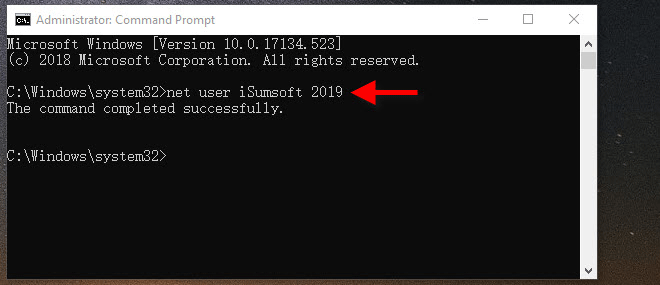
Case 2: When you cannot sign in Windows 10
Forgot Windows 10 local admin password and therefore cannot log on to your computer? Take it easy! In this case, you can still reset the local admin password using Command Prompt and then regain access to your computer, but you need the help of a Windows 10 installation disk (or startup disk). Here are the detailed steps. Rest assured that they won’t cause you to lose any data.
Step 1: Prepare a Windows 10 installation disk.
If you don’t have any available Windows 10 installation disk on hand, you can instantly create one by burning a Windows 10 ISO file to a USB or CD-ROM flash drive with the help of another accessible computer. Alternatively, you can create a Windows 10 installation media by referring to this page.
Step 2: Boot locked computer from the installation disk.
Insert the Windows 10 installation disk (USB or CD flash drive) to your computer where you need to reset Windows local admin password and then make the computer boot from the disk.
Step 3: Replace Utility Manager with Command Prompt.
1. After the computer boots up, Windows Setup screen will appear. On the Windows Setup screen, press Shift + F10 keyboard shortcut and a Command Prompt window will open.
2. In the Command Prompt window, run the following two lines of commands, which will replace the Utility Manager on Windows 10 sign-in screen with Command Prompt. Note: Replace the c letter with your operating system drive letter and press Enter key after typing each command.
move c:\windows\system32\utilman.exe c:\
copy c:\windows\system32\cmd.exe c:\windows\system32\utilman.exe
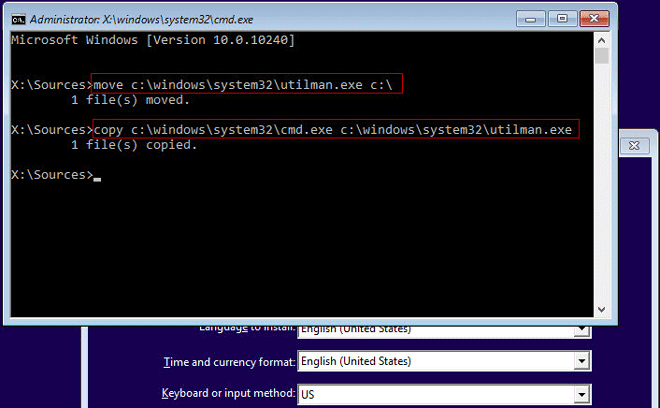
3. After the two commands are executed successfully, remove the Windows 10 installation disk and restart the computer. You can restart the computer using the command “wpeutil reboot” or by shutting down the computer and then turning it on again.
Step 4: Reset Windows 10 local admin password with Command Prompt.
1. After computer restarts and comes to Windows 10 sign-in screen, click on the Ease of Access icon in the lower-right corner. This will bring up a Command Prompt window if the previous three steps went right.
2. In the Command Prompt window, type the password reset command: net user <username> <password> and hit Enter to set a new password for your Windows 10 local admin account. Once password reset is complete, close the Command Prompt and then you can sign into the admin account with the new password.
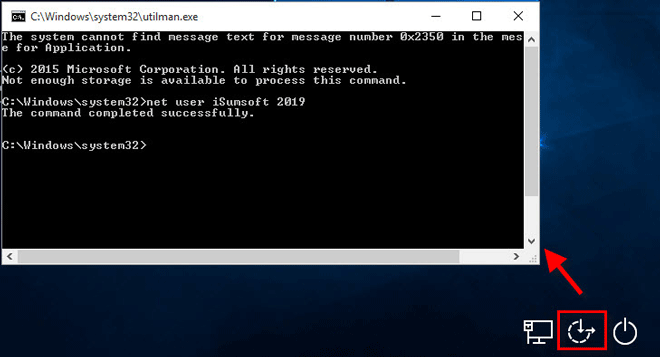
Alternatively, you can add a new local admin account by the following commands and then use this new admin account to sign into Windows 10.
net user <username> /add
net localgroup administrators <username> /add
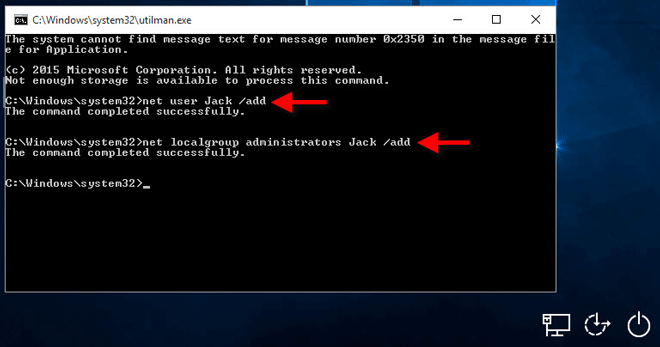
Step 5: Put back the Utility Manager.
For your system safety, you’d better put back the Utility Manager after you finish resetting password for Windows 10 local admin account. If not, others who click on the Ease of Access icon will open the Command Prompt window and might change your password or make other changes to your system. In order to put back the Utility Manager, just need the steps as below:
1. Reboot your computer from the Windows 10 installation disk again.
2. When you reach the Windows Setup screen, press Shift + F10 to bring up Command Prompt window.
3. Run the command: copy c:\utilman.exe c:\windows\system32\utilman.exe. When the message “Overwrite c:\windows\system32\utilman.exe? (Yes/No/All)” appears on the screen, type Yes and press Enter. That’s it. Remove the Windows 10 installation disk, restart computer and everything is OK now.
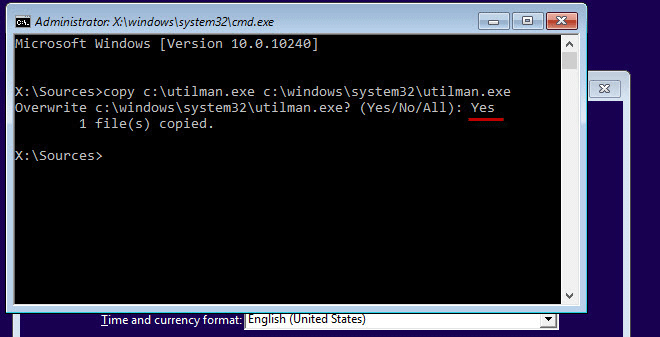
Ref: https://www.isumsoft.com/windows-10/reset-local-admin-password-with-command-prompt.html#:~:text=In%20the%20Command%20Prompt%20window%2C%20type%20the%20password%20reset%20command,account%20with%20the%20new%20password.